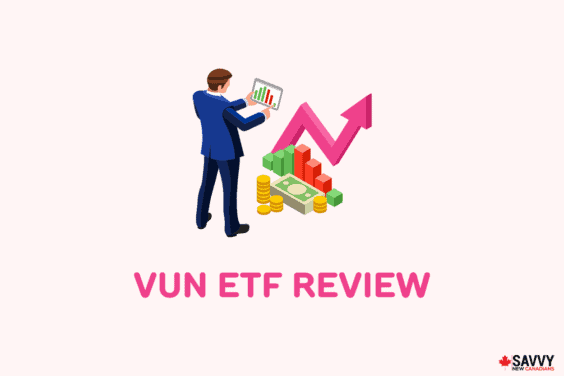When talking about liquidity, we are referring to how quickly an investment asset can be exchanged for cash. It’s not just any amount of cash either, it needs to be the fair market value for the asset.
Illiquid investments are assets that cannot be immediately or easily exchanged for cash. They are also usually not correlated to major markets like the stock market, which means they can provide some asset diversification in your portfolio.
Anyone can own and invest in illiquid assets. They do tend to have a higher market price, which can be a barrier to entry for many investors.
In this article, we will discuss everything you need to know about illiquid assets and how they might fit into your investment strategy.
Best Illiquid Investments in Canada
Real Estate Properties
There simply cannot be a discussion of illiquid investments in Canada without mentioning real estate. Canada is one of the hottest real estate markets in the world and many Canadians and international investors hold real estate property as an illiquid investment.
Why real estate? In markets like Vancouver and Toronto, real estate prices have marched steadily higher over the past few decades. This has provided a generous return for property owners.
Real estate markets do not crash as often as the stock markets do, which makes real estate a more stable asset. The primary barrier to entry for real estate is the massive downpayment you need to fork over. This has prevented many younger Canadians from being able to invest in real estate.
As far as liquidity goes, real estate is highly illiquid. Selling a home quickly can be a challenge and there is no guarantee you will even receive the funds in a timely manner.
Collectibles
Humans have always had a desire to collect things, especially if they are rare or of high value. Things like artwork or antiques can be great investments, but like real estate, they can be difficult to liquidate into cash unless you find the right buyer.
Collectibles are a broad area of alternative investments. Once again, a significant number of collectible assets have a high price tag due to their rarity and authenticity. This prevents many people from ever investing in them.
Not only are collectibles challenging to sell, but they can also be difficult to obtain. Often you will have to buy them through an auction or private art seller. The risk level for collectibles like artwork is fairly low as long as they are authentic. They can be a very rewarding asset class if you have the patience to hold them and keep your thumb on the pulse of the market demand.
Private Equity and Hedge Funds
These are both alternative and illiquid investments that are best left to the wealthy. The high cost of investing is a massive barrier to entry for the everyday investor.
Private equity firms acquire other mature companies to increase their value and re-sell them in the future. If you want to invest in private equity, expect your capital to be tied up for years.
Hedge funds are large pools of investor money that use specific and aggressive investment strategies to provide a return to investors. The minimum investment amount is usually relatively high, and seeing a minimum investment of $100,000 or more should not be surprising.
Both of these illiquid investments are riskier than other assets. You could potentially lose your entire investment if things go wrong. The potential for massive rewards is also there, which makes this an enticing risk/reward asset class for wealthier investors.
Precious Metals
There are few assets that have held such a high value for so long. Precious metals like gold, silver, and bronze have been used as investments and trading assets for thousands of years.
The liquidity of precious metals can vary. If you are invested in the actual metal itself with things like gold bullion or silver coins, then these fall under illiquid investment assets. There just aren’t many places you can sell a gold bar for market value.
You can also invest in precious metals through stocks, ETFs, or futures contracts. These are more liquid, although they do need to be sold during trading hours. On some rare occasions, precious metals can be used as currency themselves. For this article, we are talking about precious metals in Canada.
Precious metals do not see much volatility in their prices. This is why they are a popular hedge against volatility in markets like stocks. This makes them a very low-risk illiquid asset with a relatively low return potential as well.
Stock Options
These are not exactly the same thing as option contracts on the stock market, although they do operate in a similar manner. Stock options are usually provided by companies to their employees as a method of compensation.
Stock options provide employees with the right to buy shares of the company’s stock at a specific price during a specific time period. For companies that are not yet profitable and re-investing their revenues, stock-based compensation through options is a popular form of payment.
Depending on the lockup period for these options, you could be waiting a while to cash them in. Until this time, these stock options are completely illiquid. Even when you exchange them for shares of the stock, you will need to sell that stock to convert them to cash.
Long-Term Non-Redeemable GICs
GICs or Guaranteed Investment Certificates are low-risk investment assets. They provide a guaranteed investment return for providing a set amount of cash for a specified period of time.
A long-term non-redeemable GIC can tie up your money for as long as 10 years. As its name suggests, you cannot redeem your cash from the GIC until the expiry date of the term.
These can be great investments during periods when interest rates are high, and equities are volatile. There is little risk involved with GICs as you are guaranteed interest payments and the return of your initial investment at the end of the term.
Debt Instruments
Other fixed-income assets like bonds can also be a safe but illiquid investment. Bonds are similar to GICs in that you provide an amount of cash and receive interest on your principal. Bonds can be tied up for years, and if you want to redeem them early, you will need to pay a penalty.
Most debt instruments can be bought from a brokerage or your bank. Like GICs, debt instruments are frequently used by investors when interest rates are high. They are also of very low risk as you receive back your initial principal plus interest at the end of the term.
Illiquid Investments Explained
The key to an asset’s liquidity is how fast and how easily you can exchange it for its fair market value in cash. You can sell any asset for $20.00, but that means nothing if it is actually worth $100.00.
Illiquid investments are typically expensive as well. Think of art, real estate, cars, or sports memorabilia. If the asset wasn’t rare and in demand, it wouldn’t really be considered a collectible!
These assets come with an inherent liquidity risk. That is, how likely are you to find a buyer for your illiquid asset in times of volatility?
Finally, illiquid investment assets tend to come with a long-term investment horizon. Having your money locked up in the investment contributes to the challenges of selling or converting the asset back to cash.
Why Invest in Illiquid Assets? Illiquidity and Higher Risk
Investors seek out illiquid assets to diversify a portfolio that might be heavy in assets like stocks. All of the assets listed above can be relatively stable, which is appealing for older or conservative investors.
The liquidity risk mentioned earlier is a reason why illiquid assets are more risky than liquid ones. When the economy is struggling, it will likely be difficult to find a buyer for a collectible car or rare piece of art.
This can often lead to illiquid assets demanding a liquidity premium. This is a slight bump in the price to account for the potential of not being able to sell the asset in the future. In this scenario, there is a high chance you will lose money on the investment by selling it below market value.
Pros and Cons of Illiquid Investments
Illiquid investments can provide excellent portfolio diversification and steady gains as the value rises over time.
They can also be a nice alternative to the volatility of stocks and other liquid investments.
Unfortunately, they are much riskier than liquid investments. They can often be difficult to both buy and sell, depending on the market. Illiquid investments can also be expensive and in low demand during times of economic turmoil.
Liquid Investments in Canada
Stocks
Stocks are one of the most liquid investments in Canada. Shares can be sold and exchanged for cash at the stock’s current market value. The only caveat is that it has to be sold during market hours from Monday to Friday.
Mutual Funds
Mutual funds are also extremely liquid and can be sold for cash immediately. Like with stocks, mutual funds usually need to be sold during the hours that the market is open.
Short-Term Redeemable Bonds
Short-term bonds that can be redeemed without any penalty are great liquid investments in Canada. These pay out interest and are locked in for 1 to 3 years typically.
Bitcoin
Bitcoin and other cryptos are generally considered liquid investments because they can be exchanged for cash. This is especially true for larger coins like Bitcoin and Ethereum. Crypto markets trade 24/7, so you can exchange them for cash at any time.
FAQs
No, cryptocurrency is considered a liquid asset. They are generally less liquid than stocks, but since they trade 24/7, you can exchange most liquid tokens any time of the day.
The main difference is how fast and easily you can convert the asset to cash at fair value. Liquid assets can be done so immediately, while illiquid assets are much more difficult to convert into cash.
Yes, a house is an extremely illiquid asset. It is difficult to sell it within a short period of time, and you may need to wait for the funds as well. Houses need the right buyer to come along so they cannot just be converted to cash at any time.
Yes, real gold is an illiquid asset. This can be gold in the form of bullion, bars, or coins, among other things. Gold is liquid if it is in the form of a stock, ETF, or futures contract trading on an exchange.
Any stock with a low share float is less liquid than other stocks. This can include Over the Counter or penny stocks, as they are not traded in high volumes during trading sessions.
Related:






